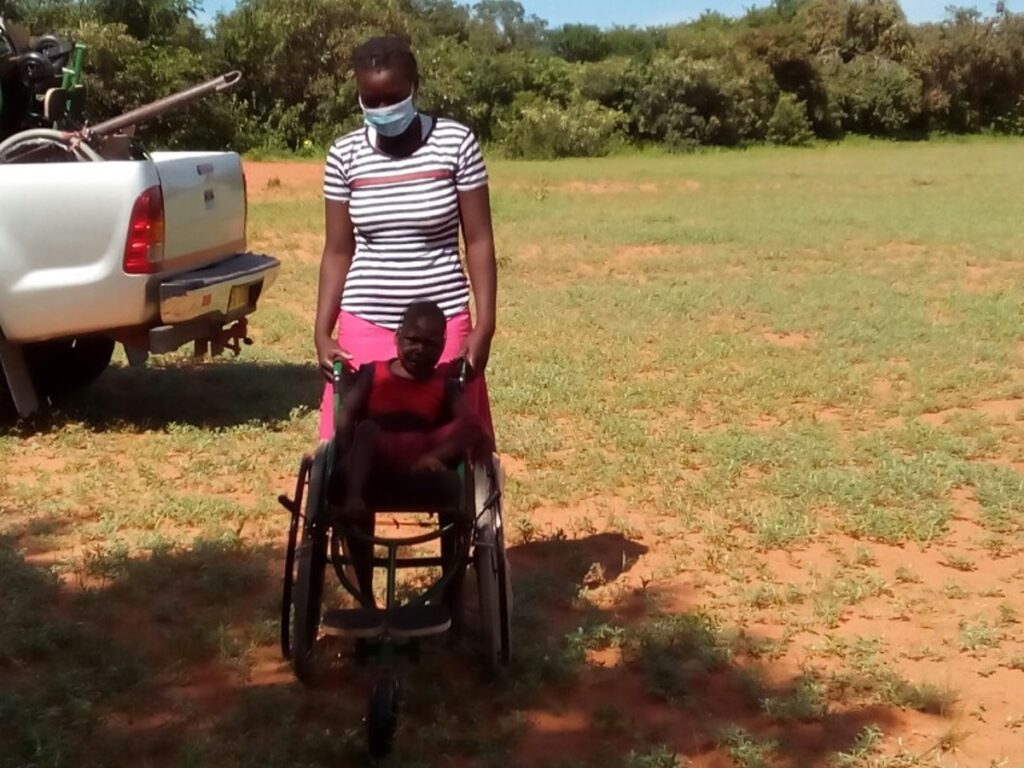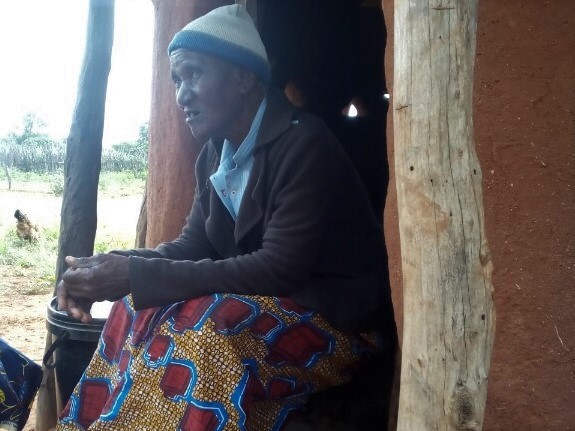COVID-19 disrupts NGO programs in several communities as the vulnerable suffer the brunt
Elliot Mugande
Zimbabwe
Reporting topics:
Women, people with disabilities, Covid-19, livelihoods
Loveness Munsima is a 21-year-old woman from the Binga district. She has a disabled 4-year-old daughter whose father is far away in Bulawayo and is jobless. Munsima is not employed. She has no source of income. Opportunities are scarce. Her daughter requires special attention and it pains her that she is not able to provide for her child.

Before the Covid-19 lockdown, her partner ran a small shoe repair business in the big city. He randomly sent groceries and clothes back home. He is detached. Children with disabilities face stigmatization and segregation in communities that are superstitious and backward. Munsima carries the burden of raising a special-needs child alone and has to fight the stigma alone.
The wheelchair that her child has was donated by a local non-governmental organisation in Ntengwe. A number of disabled children have benefitted from the work done by non-governmental organisations (NGOs). But the covid-19 lockdown has disrupted the activities of these NGOs as they are hamstrung by movement restrictions.
A 2020 rapid assessment by the UNESCO Regional Office for Southern Africa found out that people with disabilities in Zimbabwe have experienced a lot of challenges exacerbated by the COVID-19 pandemic and the lockdown restrictions. The report also found that not all registered persons and deserving people with disabilities are receiving free medical services from the government and also that drugs are in short supply.
For Munsima and her daughter, the disruption of NGO work translates to a lack of alternative healthcare, access to food aid, and occasional work as NGOs often engage locals for little community projects.
This article was written by ECID’s Community Engagement Officer Michito in co-production with Our True Voice community reporter, Elliot Mugande, who was reporting on this issue in his community.


